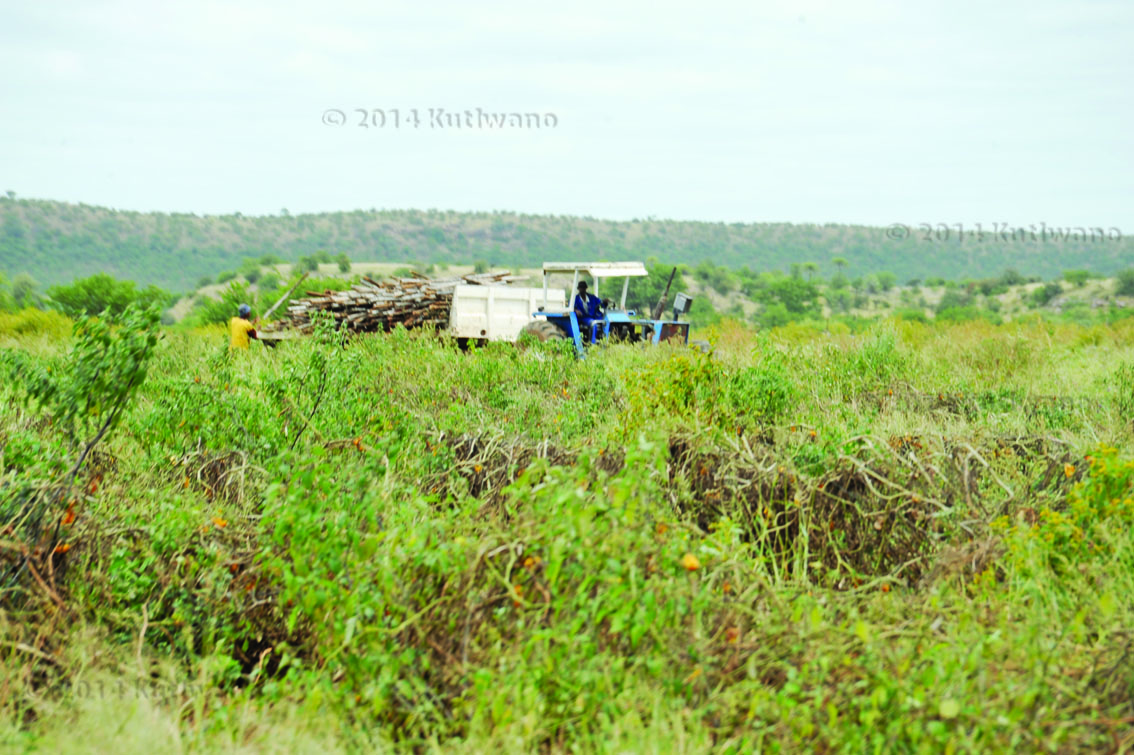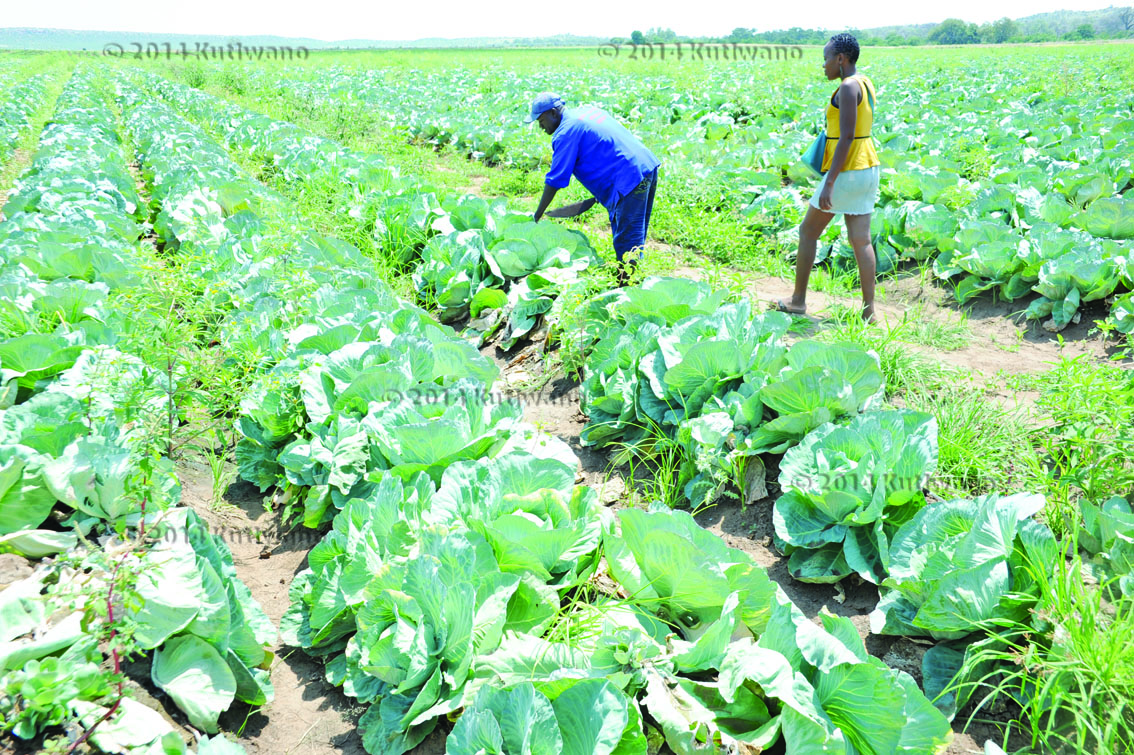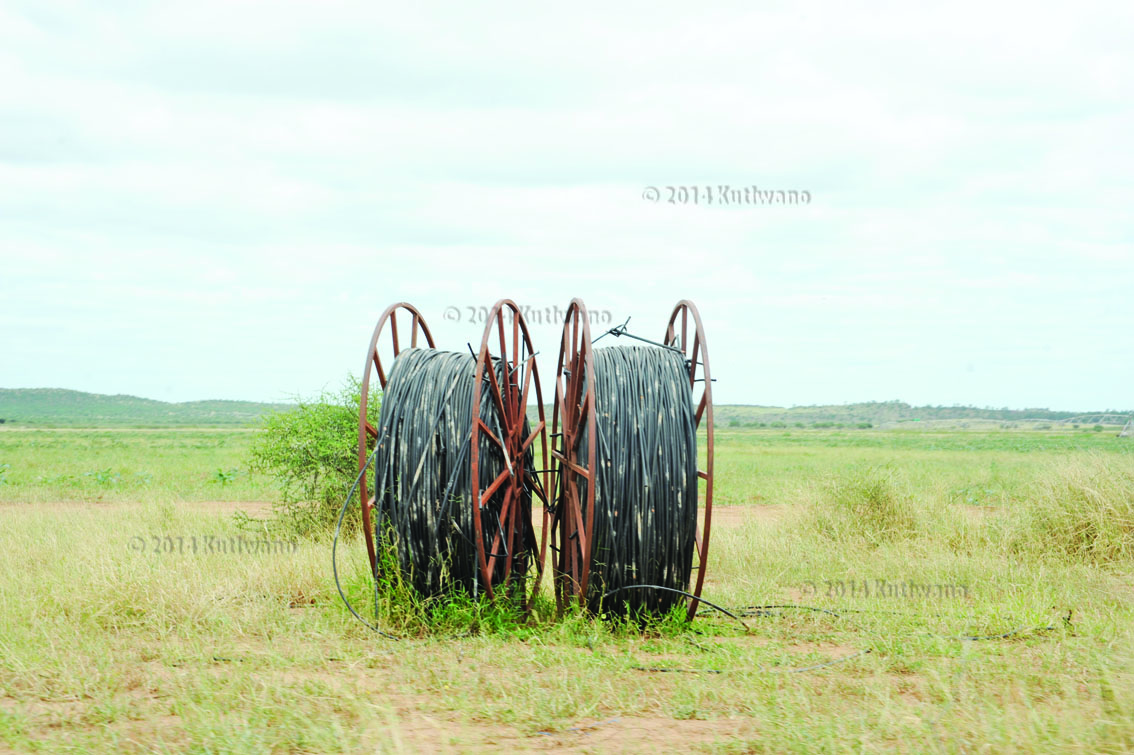Irony that is Talana Farms
Source : KUTLWANO
Author : Ndingililo Gaoswediwe
Location : BOBONONG
Event : Business feature
Irony that is Talana Farms
Article: Ndingililo Gaoswediwe
Photos: Phenyo Moalosi
I cast my eye over a notice that welcomes visitors to Talana farms. “Talana Farms.” The two words inscribed in green conjure up a whole new set of images in my mind of this celebrated farm that I have for many years wanted to visit.
We follow the bumpy dusty road that twists into the farm. A large piece of land with tomato trees that appear to have withered after harvesting welcomes us. The next piece of land is covered with a variety of weeds that too seem to have been frustrated by the unfriendly sun. On this Thursday, the gigantic watering system is at rest. It is all ironic. Talana means green, but the sight before us is in direct contradiction to the suggestion in the name.
The majority of the farm workers loiter around within their temporary home except for two boys who are herding livestock, and a few men who are removing stakes from the tomato plants. The veld maintains its khaki hue until we reach the office that is over a kilometer from the entrance. Here we see the first sign of green – line upon line of ripe cabbages. Even then these are fewer than what we had expected given the many reports about the huge vegetable gardens of Talana.
Has mass production of vegetables ceased at Talana? A big no comes from the Managing Director Jan Willemse. The manager, who seems at ease with the pong of animal waste comprising cow, ostrich, sheep and possibly pig dung that is at war with the oxygen from gigantic shady trees surrounding the office explain the fields are cultivated seasonally.
“We are seasonal producers and bulk production is done in winter because summer heat is extreme though vegetables like tomatoes and beetroots can survive throughout the year.”
But come in a month`s time, he says and the 380 hectare horticulture piece of land will be admirable with tomatoes, onions, carrots, beetroots, green pepper, cabbage, broccoli and butternuts. Some hectares will lie fallow to allow the soil to recover.
A few months later, long-haul refrigerated trucks will frequently be seen along the poorly maintained gravel roads that link the farm to the market.
“We sell to the horticultural market in Gabs, Selibe Phikwe and also distribute to Central and Northern Botswana,” says Willemse who decries what he terms too small a market. The market that absorbs only a little from his farm with the result that vegetables such as cabbage, tomatoes, onions and beetroots remain at the farm with no buyer.
The solution to this problem is a processing industry that is expected to start operating between May and June this year. The farm director explains that once in operation, the plant will accept all horticultural products and will thus be benefit to both small and large scale producers.
The factory could not come at the right time, especially after farmers suffered a major blow when the South African government refused them permits to export to the country despite meeting all the necessary requirements. Willemse is confused as to why the government here keeps on importing vegetables from SA.
He says another challenge apart from the small market, is that Batswana don`t want to work in farms. “When we require large numbers of unskilled personnel we are forced to recruit outside the country and permits are very expensive.”
To add to their misery are the area`s poor roads. Talana is very remote and located within Northern Tuli. It is accessible by poorly maintained gravel roads from either Lentswelemoriti or Bobonong villages.
The farm that Willemse manages was used for growing cotton before it was turned into a horticultural and ostrich production undertaking in 2006. The farm is a partnership between Botswana Development Corporation and Willemse. At any given time it employs between 250 and 650 people depending on the amount of work. ENDS
Teaser:
“We sell to the horticultural market in Gabs, Selibe Phikwe and also distribute to Central and Northern Botswana,”















